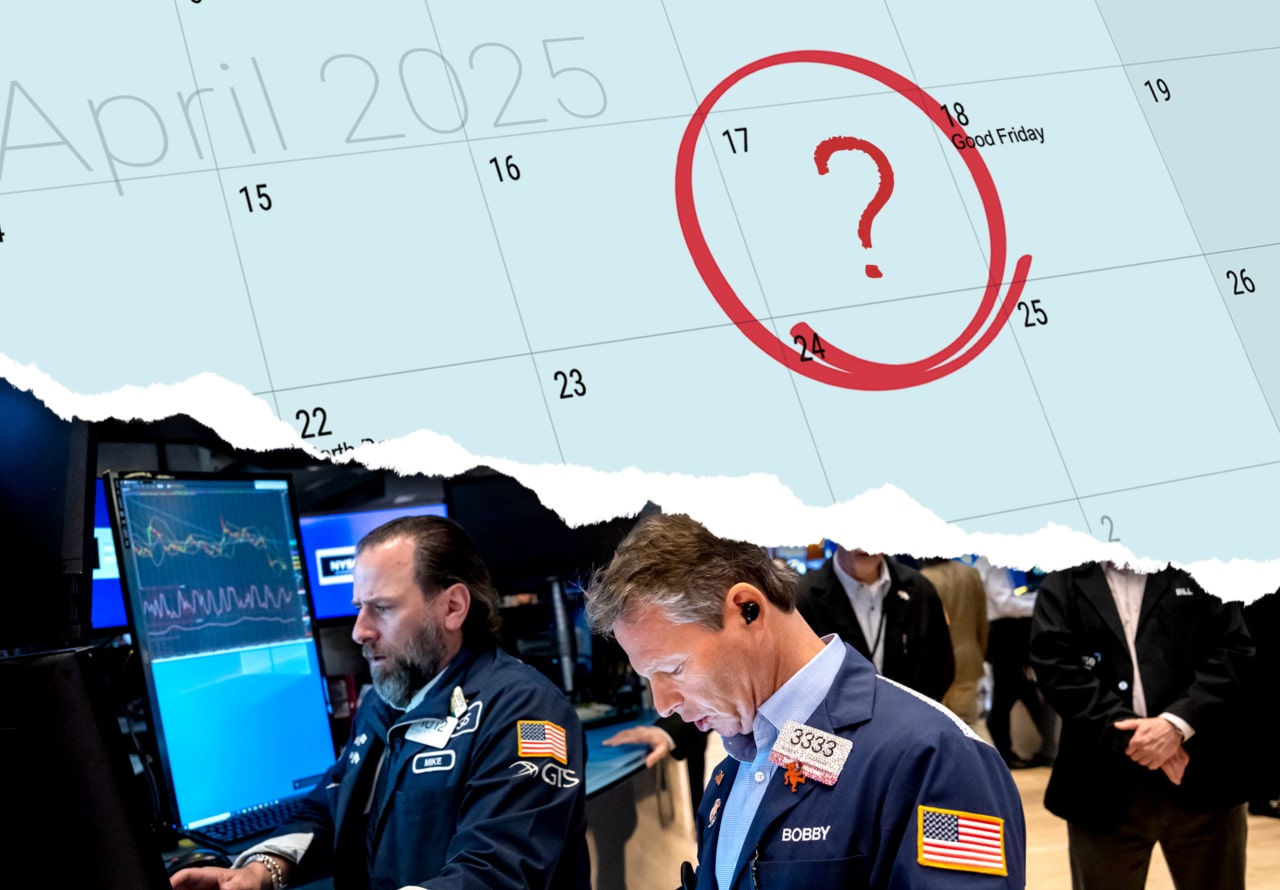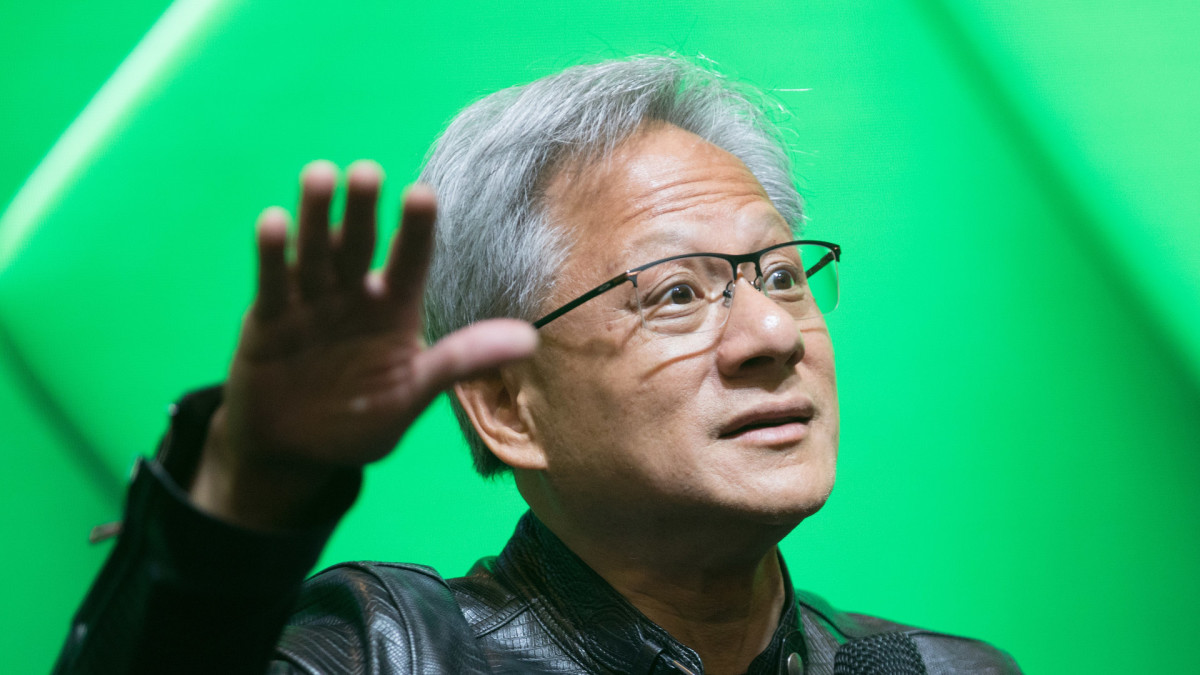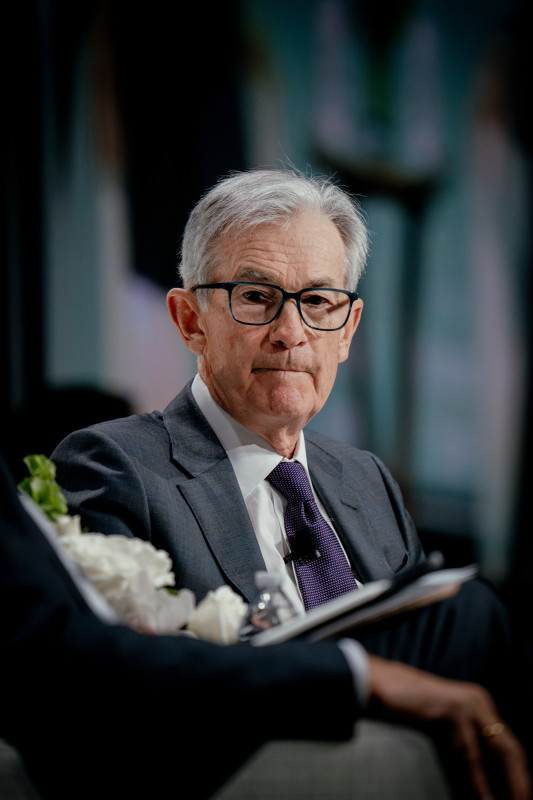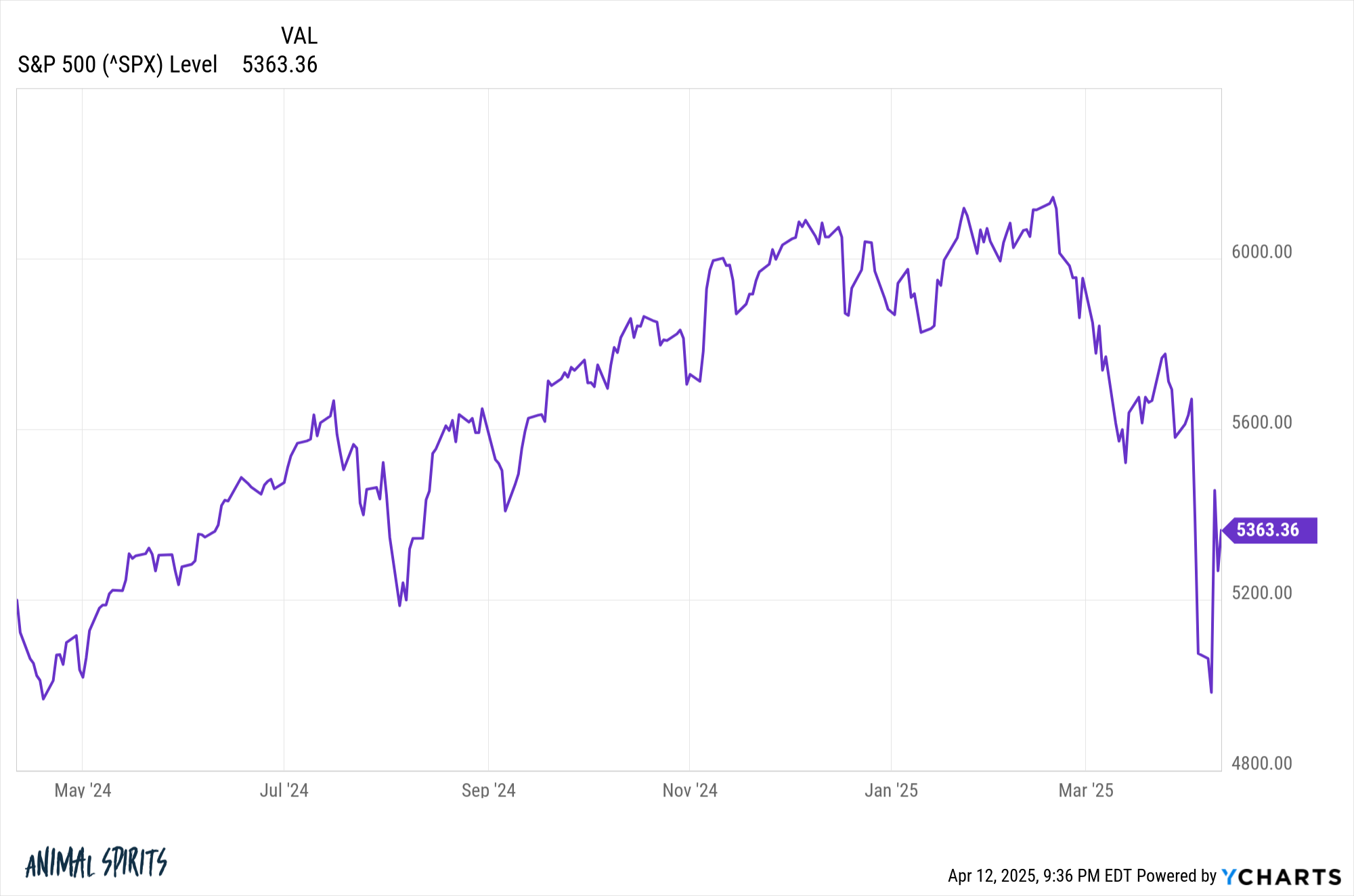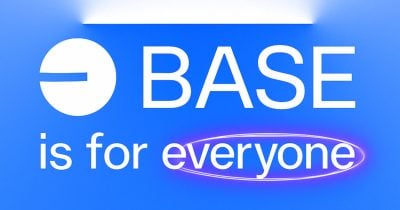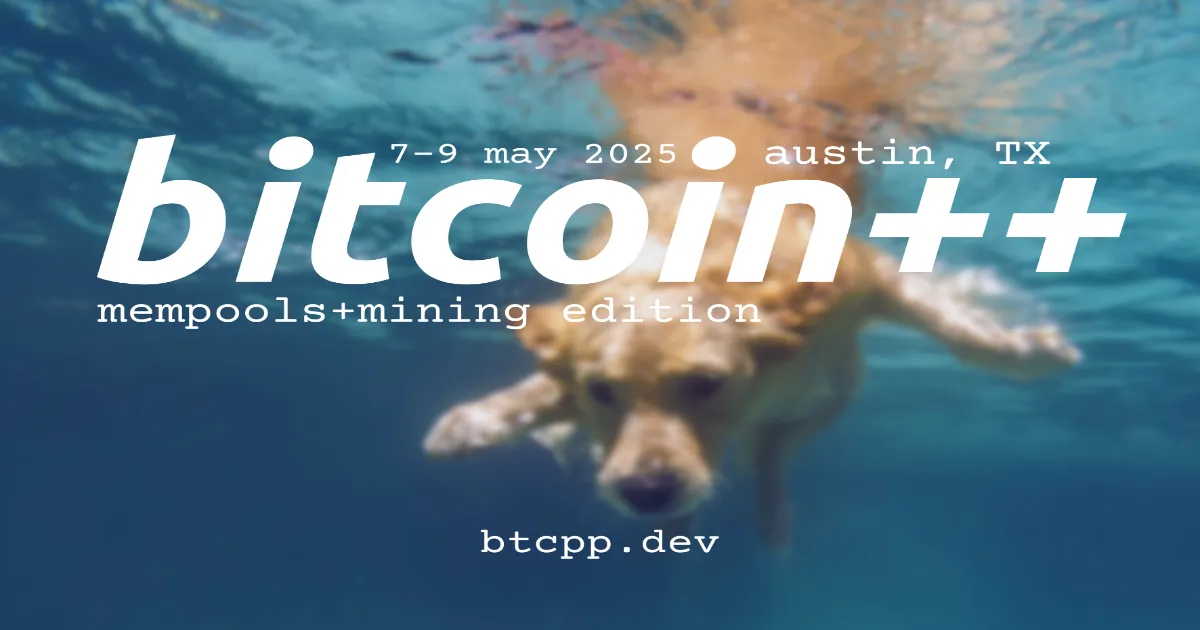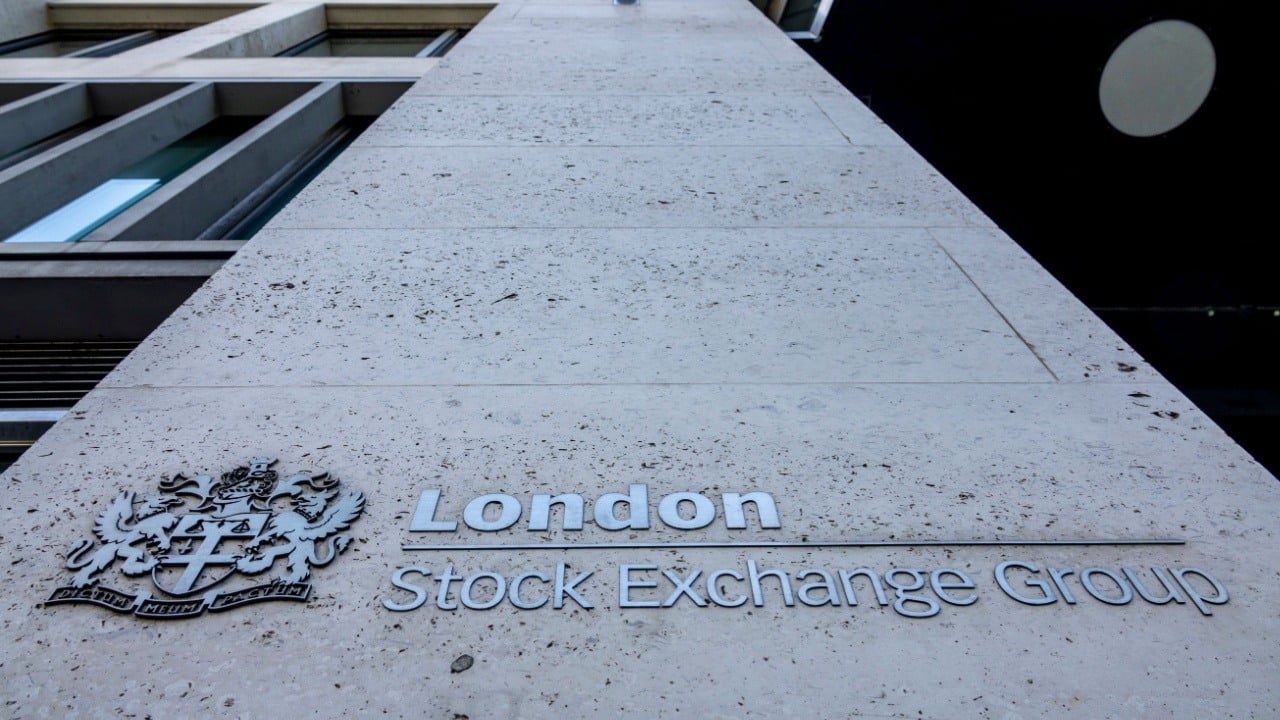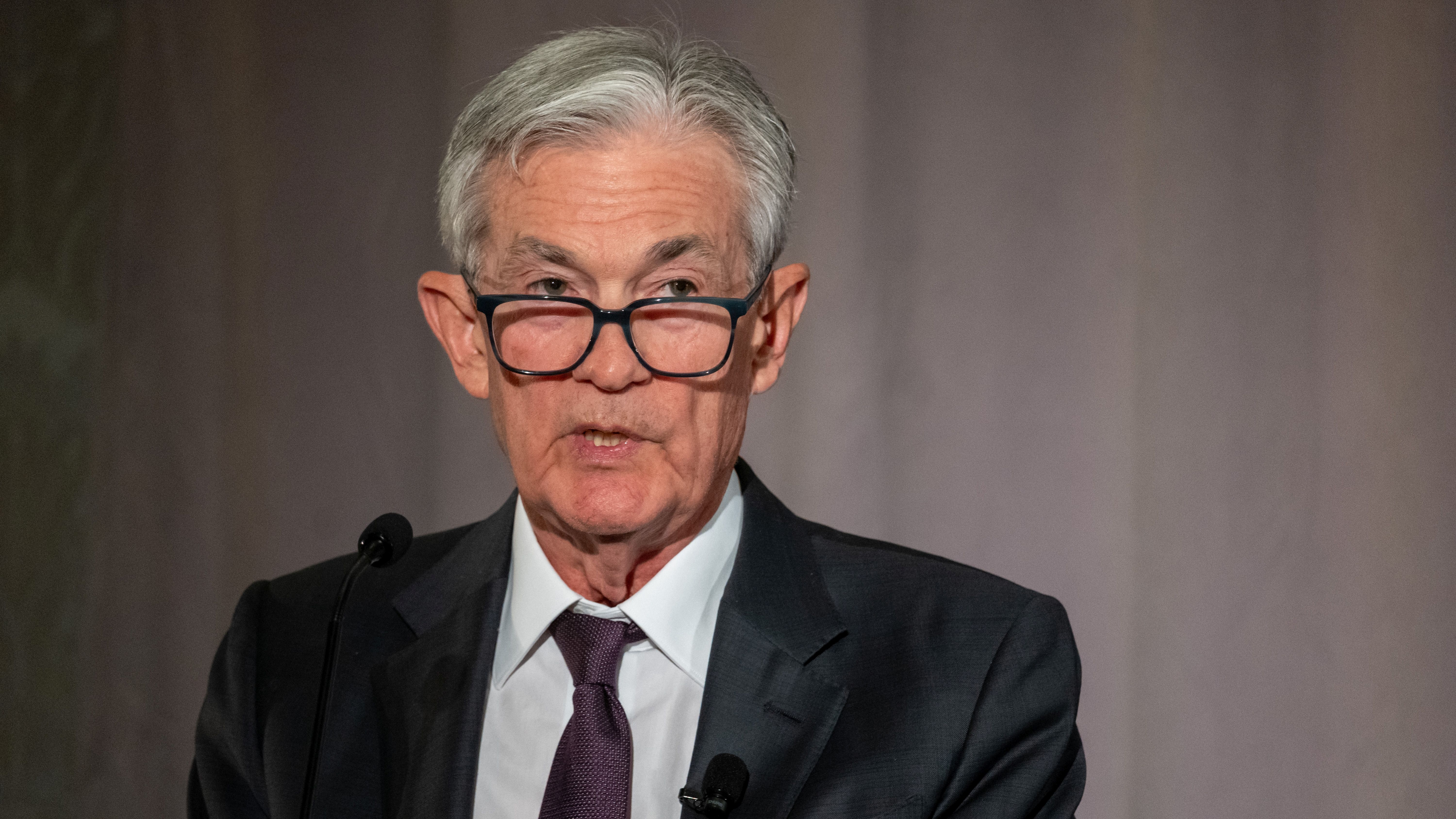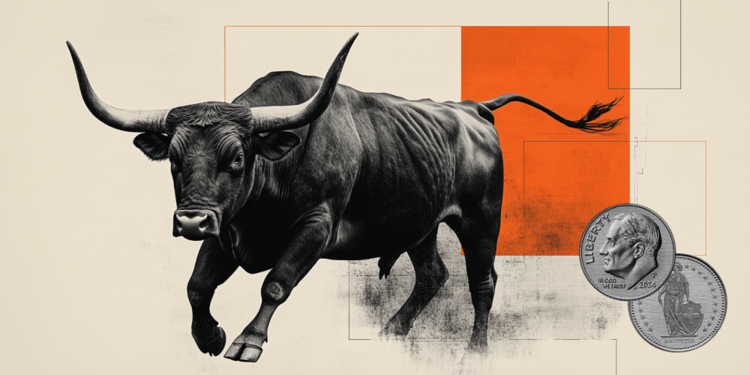Transcript: Sahil Bloom, Understanding ‘The 5 Types of Wealth’
The transcript from this week’s MiB: Sahil Bloom on Understanding ‘The 5 Types of Wealth’ is below. You can stream and download our full conversation, including any podcast extras, on Apple Podcasts, Spotify, YouTube, and Bloomberg. All of our earlier podcasts on your favorite pod hosts can be found here. ~~~ This is Masters in… Read More The post Transcript: Sahil Bloom, Understanding ‘The 5 Types of Wealth’ appeared first on The Big Picture.

The transcript from this week’s MiB: Sahil Bloom on Understanding ‘The 5 Types of Wealth’ is below.
You can stream and download our full conversation, including any podcast extras, on Apple Podcasts, Spotify, YouTube, and Bloomberg. All of our earlier podcasts on your favorite pod hosts can be found here.
~~~
This is Masters in business with Barry Ritholtz on Bloomberg Radio
Barry Ritholtz: This week on the podcast, strap Yourself in for another extra special guest. Sawhill Bloom is the author of a new book, the Five Types of Wealth. He’s also worked in both private equity and venture capital as well as running his own firm. The book is kind of fascinating, focusing on not just money as a source of wealth, but time, your social life, your mental and psychological attitude, your physical health as well as your financial wellbeing. That by focusing and only measuring money, we use a scoreboard that really doesn’t sum up everything that we should be thinking about. I found our conversation to be really fascinating. The book is really interesting and Sawhill is really knowledgeable person who’s lived for a relatively young person. A fascinating life came to a realization that he was wasting his time, his physical health and, and a lot of other assets that he had and kind of rejiggered his whole approach to what he was doing. I thought the discussion was really fascinating and I think you will also, with no further ado, my conversation with Sawhill Bloom, the author of Five Types of Wealth.
Sahil Bloom: Thank you so much for having me. I’m thrilled to be able to do this in person. Yeah, a
Barry Ritholtz: Little, little unusual sort of building and fun sort of place relative to what you were used to on the West Coast. You relocated to the East Coast, right?
Sahil Bloom: I did, yeah. In 20, 21
Barry Ritholtz: We’ll talk about that ’cause I was very touched by what you wrote in the book about that. Let’s start out with your background. Stanford Bachelor’s in Economics and Sociology and a Master’s in Public Policy. What was the career plan?
Sahil Bloom: To be honest, I don’t think I knew. I’ve never been a very good planner my entire life. I, my dad’s a economics professor and so economics seemed like a good undergraduate plan, but frankly at the time my real plan was to go play professional baseball. I, my entire life had been a baseball player. I got a scholarship to play at Stanford, played there and probably somewhat naively thought that I could go make a career out of it, playing in the big leagues and a shoulder injury, my end of my junior season sort of derailed those aspirations and I had to find my footing in something else.
Barry Ritholtz: So you’re almost lucky it happened sooner than later, right?
Sahil Bloom: I think so. I think, I think, you know, in hindsight’s 2020 on these things, there’s always a silver lining as they say. I think what would’ve happened if I had tried to play professionally was I would’ve ended up spending, you know, three, four or five years toiling around in some like bus in the middle of nowhere in the minors and then ended up having to go start at, you know, 28 or 29 rather than 22.
Barry Ritholtz: And you worked with Condoleezza Rice as your advisor at Stanford. That sounds pretty fun. What sort of lessons did you learn from her?
Sahil Bloom: I mean, she’s a remarkable woman. Politics aside, I mean, a woman who grew up in the deep south in Alabama and rose to become Secretary of State of the United States of America, I, I mean, just mind-blowing, pretty impressive.
What she actually built and what she created in her life and the intelligence that she displays in the grace with which she displays it has always wowed me. And I, you know, look, I cold emailed her when I was at Stanford to try to ask her to be my master’s advisor and was fortunate that she at least gave me a chance to go speak to her in person and convince her to do that. And I got to take her course that she teaches at Stanford, which was sort of a small group live, basically live action seminar where you kind of do these simulations of real world foreign policy events where each person’s sort of taking on a different role and you go through these simulations, like get woken up at two in the morning to go through some crisis event. And it was just fascinating to have someone in the room like her who had actually been through those things and hear the stories she told about her, you know, battles with Vladimir Putin and whatnot. It was just incredible.
Barry Ritholtz: I could only imagine. You spend all four years at Stanford on division one baseball team. That’s very high level. I always like to ask people to draw parallels. What sort of skills and philosophies did you as a college athlete find applicable to the rest of your life and or wealth and finance?
Sahil Bloom: Effectively every single lesson that I feel I have benefited from in my career was something that I learned in baseball. I think first off, teamwork and the ability to manage multiple diverse personalities in a single environment is a meta skill for life that rarely gets taught. And a team forces you to learn that very early and very quickly. And if you don’t, you will not function as a team. You know, like the, the understanding that not everyone is wired the same, that not everyone is motivated by the same things that you need to meet people where they are and then hopefully all rise to the level of the expectations you have as a group. That is really an important lesson to learn for life. You know, look, the other one which people talk about often is just the alpha that you can generate through resilience as a human being. And it is very, very difficult to develop in a context outside of sports. And I think that, you know, there’s a reason that a lot of athletes and a lot of military, former military end up being incredible employees and team members because they have had to battle, they understand that failure is not final. That it’s a learning lesson that you can take the event, learn the lesson from it, and move on to the next situation that you face,
Barry Ritholtz: Right? It’s all about process, not outcome. If you have an unlucky bounce and you lose, you still gotta get up, dust yourself off and start all over tomorrow. Very applicable to trading desks and other things involved in finance.
Sahil Bloom: I think it’s the combination here that’s important. So, you know, we live, we live in a world where, especially today, a lot of people want to focus on the inputs. And you have all these people like, oh, you know, you should really care about the inputs and just focus on feeling proud of the inputs. And, and I actually agree with that to some extent because at the end of the day, the world will judge you for your outputs. It doesn’t matter whether you feel great about the input, the deep work routine, the morning routine, all of the rituals that you had, if your output is, and athletes know that, right? We do. We focus on the inputs, absolutely. You show up at practice every single day. But we also know that no one gets an eighth place medal prize. They’re not handed
Barry Ritholtz: No participation prices…?
Sahil Bloom: No, they’re not handing those out. And, and you have to learn that in life. I, you know, like I have a two and a half year old son now and I want him to know that. And it’s sort of a harsh truth of the world that like, yes, your inputs matter and I want you to focus on them and be proud of them and continue to refine them. But at the end of the day, you are going to be judged for your outputs.
Barry Ritholtz: Huh. Really, really interesting. So you end up at Altamont Capital Partners, which at the time was running about three and a half billion dollars. How’d you find your way there? What were you doing?
Sahil Bloom: So it’s a private equity fund in the Bay Area. It was a spin out from a now much larger firm called Golden Gate Capital. Incredible group of people, small group. They were just starting to hire at the analyst level when I was getting done with school. So, you know, I was originally planning to go join, you know, an investment bank or go join McKinsey and try to basically do the two years prior and then go to business school and then, you know, go join a private equity fund or a hedge fund after, you know, really with the thesis that like, that’s the path that I see successful and rich people following, right? So let me do that. I’m gonna do the two years at Goldman Sachs or McKinsey. I’ll do the business school and then I’ll try to find a fund. And I met the team at Altamont and they were hiring at the analyst level. And it just seemed like a screaming opportunity to go join straight outta school and have the opportunity to, you know, really drink from a fire hose, learn in an environment where you are having to learn on the fly a path that you know nothing about.
Barry Ritholtz: So first you transition from sports to finance, then you effectively transition from finance to content creation. We, we mentioned the Curiosity Chronicles and full disclosure, I’ve been a dis subscriber for a long time. I, I, I love how you really pull a lot of really interesting things from all sorts of disparate subjects together in a very cohesive way. And now you have this book. Tell us about that second transition. Yeah,
Sahil Bloom: This was a more painful one in my own life. I probably for the first four or five years in my professional career working in private equity had an incredible experience and was learning a ton and, you know, working with a great group of people making money, you know, doing the things that I thought a successful life looked like. And along that path, my own priority set and the things that I was focusing on grew more and more narrow and entirely focused on making money as the means to achieving the happy and fulfilling life that I was after. Let,
Barry Ritholtz: Let me interrupt you a second. Just ask, ’cause I, whenever I have this conversation, either on the air or just talking to people and friends about it, how comfortable or not so comfortable was your upbringing? It seems like your, your father’s a, a professor at a college. Like it wasn’t that you really wanted for anything. I’m always curious what motivates people to what degree to chase the dollar.
Sahil Bloom: Yeah, we were upper middle class probably. Okay. By, by national standards. My dad’s a professor at Harvard. Okay. So we, we, he wasn’t a hedge fund guy, we weren’t rich. I lived in a town, actually, I grew up in a town called Western Massachusetts where a lot of my friends’ parents were really successful in finance. And so I was surrounded by people who had made a lot of money. And when I, and…
Barry Ritholtz: It’s always relative, right?
Sahil Bloom: Yeah. And when I was a kid I was like really jealous. Like I had a, my best friend growing up had this incredible house. His family flew on private jets, they went to all these places and you know, like I was very jealous of all the things that he had that I didn’t. And I never really questioned the fact that like, I would leave after hanging out with him and he would have like chef prepared meal by himself in front of the TV and I would get to go home and have dinner with my parents around the dinner table. And I never questioned whether that actually made me quite rich.
Barry Ritholtz: And you mentioned that in the book. Yeah. That anecdote and lots and, we’ll, we’ll talk a lot about the book in a, in a bit, but I found a lot of the personal anecdotes and stories really compelling and, and very sincere. ’cause they, you know, we all have different lived experiences, but there’s an overlap. We all share certain types of things. And I very much related to a lot of the things you, you were talking about that story was like, you don’t know what happens behind closed doors and you don’t know what burdens people are carrying.
Sahil Bloom: Yeah, absolutely. I mean it’s, it’s definitely right. I’m glad they resonated. I, but look, all of this to me was about my own priorities had grown so narrow to the point where I was focusing on the one thing money at the expense of everything else. And nothing in this book is to say that money doesn’t matter. And I really wanna be clear about that because I think there’s this common trope of saying like, you know, you come out and you say, oh, money doesn’t matter. All these other things are more important and look, money matters. And actually the science is pretty clear on this. Yeah. You know, money does directly buy happiness up to a point. It reduces fundamental stresses and burdens. It allows you to take care of people, create experiences. There’s a lot of good money isn’t nothing, it simply can’t be the only thing.
And in my own path, and I think on a lot of people’s paths, we grow so narrowly focused on money as the way to this happy, good life and we lose sight of the other things. And the reason that I propose for that is because money is the thing that we can measure. And as Peter Drucker, the management theorist said, what gets measured gets managed means you optimize around the one thing that you can measure. And so because money is so measurable, it becomes the thing that you focus all of your energy and attention around and often to the detriment of these other things, money is your life scoreboard, if you will. And so, you know, you might be winning on that scoreboard, but if that scoreboard doesn’t capture the bigger picture of your life, you may win the battle but lose the much broader war.
And that was really where I found myself when covid hit in March of 2020 Covid hit, we were stuck at home. And it was the first time that I had really zoomed out and been able to kind of see and assess my own life. I was making money, I was getting promoted. You know, I had some of the things that you would say are like the trappings of success, but I was pretty miserable. My relationships, like with my parents, I was never seeing them. We lived 3000 miles away. They’re getting older and super close to them my whole life. And I just wasn’t seeing them. My relationship with my sister had ground to a halt. My wife and I were struggling to conceive at the time, unfortunately. And that was creating strain in our relationship. My health, I mean, I was drinking six or seven nights a week, not, you know, raging, but like it had crept up on me.
And that was impacting my sleep, my stress levels, all of these areas of my life had started to suffer because my priorities had gotten so focused in on like money being the exclusive thing that was going to lead me to the good life. And it all came to a head for me. May of 2021, I went out for a drink with an old friend and we sat down, he asked how I was doing and I said that it had started to get tough, being as far away from my parents as we were. They had started to get older. And I started to notice their own mortality. And he asked how, how old they were, and I said mid sixties. And he asked how often I saw them. I said about once a year. And he just looked at me and said, okay, so you’re going to see your parents 15 more times before they die.
And I just remember feeling like I had been punched in the gut. I mean, the idea that the amount of time you have left with the people you love most in the world is so finite, so countable that you can put it onto a few hands shook me to the core. And I realized in that moment that we needed to make a change or we were gonna end up in a place where we didn’t want to be. And so I told my wife the next day that I thought we needed to make a move. And within 45 days, I had stepped away from my full-time position at the firm. We had sold our house in California and moved 3000 miles to be closer to both of our sets of parents.
Barry Ritholtz: That’s an amazing story. As I was reading it in the book, my only reaction was what a devastating realization to recognize not just your own mortality, but hey, your parents are a generation or two older than you. They’re not here forever. The thought of only seeing them once a year and then they’re gone. Pretty powerful stuff.
Sahil Bloom: It’s powerful and devastating, but also empowering and inspiring. And the reason I say it’s empowering and inspiring is because it reminds you that time is your most precious asset. It is quite literally the only thing that matters in the end. And you know, I go ask young people, would you trade lives with Warren Buffett? He’s worth $130 billion. He has everything that you want, $130 billion access to anyone in the world flies around on private jets, you know, mansions all over the place. He reads and learns for a living. But you wouldn’t trade lives with him simply because he’s 95 years old. There’s no way you would agree to trade the amount of time you have left for all of the billions that he has. And similarly, he would give anything to be in your shoes today and have the amount of time you do. He would give up all of his money.
And so, you know, in the back of your mind that time has this incalculable value. And yet on a daily basis, we sit around wasting it. We scroll around on our phones, you know, scrolling on TikTok, looking at social media, comparing ourselves to other people, low value, low energy tasks. We don’t spend time with the people we care about. We do all these things that are spitting on the value of our most precious asset. And that really is the call to action around this idea. It is to recognize time is your most precious asset to make a change. Because the empowering part of all of this is you are much more in control of your time wealth than you think. We took that number the 15 times before we die. We made a change. It’s in the hundreds now. I see my parents several times a month. They’re a huge part of my son’s, their grandson’s life. We made a change, we took an action that created time.
Barry Ritholtz: So we were talking earlier about something that, that was really fascinating. You said money isn’t nothing, but it can’t be the only thing. And and I think that really sums up a, a, a great amount of insight. So tell us how you went from kind of being unhappy in your west coast life and not seeing your family to writing this book. What was the motivator here?
Sahil Bloom: It was a manifestation of my own journey. And that journey was really to try to understand what was a better way to measure our lives. What was a better scoreboard, if you will, that we could track and measure against. And the the realization there is that when you measure the right thing, you take the right actions and you create the right outcomes. When you measure for the broader war of the life you’re trying to live, you will take the right actions to win that war. And if you, all you’re measuring for is the battle of money along the way, you may win that battle, but you will lose the war. And we’ve seen a lot of people, we all know a lot of people who have done that, who have won the money battle, but they end up with three ex-wives. They end up with six kids who don’t wanna have anything to do with them.
They end up, you know, overweight in a really bad place mentally. All of those things are an example of winning the battle, but losing the war. And I was determined to not live that same fate because it feels very avoidable if you are thoughtful about how you design your life along the way. And so this book is an outflow of that idea. It’s an outflow of creating the right scoreboard to measure the things that matter in your life, to define what really matters to you so that you can take actions to go and build your life around those things.
BR: So one of the five types of wealth is time. And you spoke earlier about the value of time. How do you convince someone in their teens or twenties or even thirties? ’cause back then we’re all immortal. That’s the advantage of being 20 something. Hey, we’re gonna live forever. The elapsing of time is just so abstract. How do you get them to realize time is a finite asset and it’s your most valuable asset?
SB: I love that question that I asked earlier about trading lives with buffet, because it does bring to light the fact that you do place significant value on your time. You just don’t know it, it’s not in the front of your mind, you know, and look, I think that some of these tools that people have created, like there’s this calendar, the Memento Maori calendar, if you’ve seen it, which is you’re filling in weeks of your life. So it’s 52, you know, squares across, and then it’s about 80 or 90 squares going down. And so it’s basically every week of the course of your life and you fill it in so that you get this visual representation, very visceral, raw, real of the amount of time that has passed and the amount of time you have left on average in your life. And that is, again, a little bit morbid, but also a call to action to take very seriously every single week.
00:20:01 Because you think about if you zoom out and just think about how many weeks have you just kind of slept through, done, like not much, not really remembered anything, not really been present in moments, you’ve just let them kind of slip by. They’ve just come and they’ve gone. And when you look at it in the, in the perspective of that calendar, and you say like, well, that’s a black mark that I’m never going to get back because I was stressing about something silly or I was worried about the future or thinking about the past. It really does draw you into the present. And so I think that is a really effective way.
00:20:34 [Speaker Changed] You know, I’m fascinated by a book written by Oliver Berkman. I don’t know if if you’ve seen this so good. Yeah, it’s great. The all you need to do is hear the title of the book, 4,000 Weeks Time Management for Mortals. It’s really so amazing in that, you know, he talks about human life is insultingly brief and you are talking to the same thing.
00:20:58 [Speaker Changed] Yeah. Oliver is a wonderful modern day philosopher. He has a new book called Meditation for Mortals, which is also similarly fantastic. And I think it is exactly that. Look, I, I think that time wealth, really what it’s about is it is the freedom to choose who you spend your time with, where you spend it, how you spend it, when you trade it for other things. It is about freedom. It is about control it, and people think that money buys freedom. You think that money buys you that time wealth, but it’s not true. I know plenty of people who work 80 to a hundred hour weeks making $10 million a year, all the money in the world, but have zero freedom, zero control over their calendar because they’ve tied themselves into a life where they need to continue working that way to continue making that money, to continue to feed the lifestyle that they have. And they have no ability if they, if they don’t wanna work for a month, they can have all the money in the world, but they’re stuck in this lifestyle, this treadmill that they’re currently on. And so the insight there is that it’s not money that buys you freedom. It is thoughtfully designed and invested money that gets you the freedom. It, it is the actual way that you construct and create your life that is, has to be free.
00:22:11 [Speaker Changed] I I love the phrase hedonic treadmill, because the blind pursuit of more, as opposed to what you describe, which is understanding what enough means, really becomes very significant.
00:22:24 [Speaker Changed] Yeah. One of my favorite stories is that whole idea of the, the fishermen and the investment banker. You have a story of an investment banker goes down to a Mexican fishing village, and he comes upon this fisherman who’s on a boat and has caught a few fish. And he says, how long did it take you to catch those fish? The fisherman says, only a little while. And the banker’s confused. He says, why didn’t you fish for longer? The fisherman says, well, I have all I need. I fish for a little while in the morning, catch a few fish, then I go home, have lunch with my wife, take a nap. And then in the evenings I go into town and drink wine and play music and laugh with my friends and the banker’s like, you’re doing this all wrong. Here’s what you have to do.
00:23:05 You have to fish for longer so you can catch more fish. Then you use the profits from that to buy a second boat. You hire people, then they catch fish, then you buy a third boat, fourth boat, you create a huge fishing enterprise. You move to the big city, take the company public, and you’ll make millions. And the fisherman looks at ’em and says, and then what? And the banker says, what do you mean? And then what? Then you can retire and you can move to a small fishing village. You can fish for a few hours in the morning, and then you can have lunch with your wife. You take a nap. And then in the evenings you can go into town, drink wine and play music and laugh with your friends. And look, the, the story is typically interpreted as saying that the banker is wrong and the fisherman is right.
00:23:44 And I actually disagree with that, and I talk about this in the book. What I think the meaning of the story is, is defining your version of a meaningful life and then going and building your life with actions around those things. For the banker, his definition of success, his version of a meaningful life might be creating something big, creating a bunch of jobs, creating something around his purpose, creating things of value for the fishermen. He’s already living his definition of his meaningful life. He’s already in it. And so neither one of them is right or wrong. It’s about really figuring out where you are on that spectrum from fishermen to investment banker, and then going and taking action to actually create your life around that definition.
00:24:25 [Speaker Changed] So you described this as the scoreboard problem in the book. It seems that today more than ever, the scoreboard problem has become very prevalent. Why do you think that is?
00:24:39 [Speaker Changed] We are obsessed with tracking and measuring ourselves. And I think in a world of, you know, in a world where our ability to do that in a real time basis has become more and more readily available, we become more and more obsessed, right? Like when, when you were young, you could not track your net worth down to the minute, right? You probably just couldn’t. I mean, at some point, you know, if you were buying stock in a company, like you had to check the daily thing that came up in the newspaper like when my dad was a kid versus now literally instantaneously you can see changes in your net worth
00:25:12 [Speaker Changed] On your phone, on
00:25:13 [Speaker Changed] Your phone, on any of the things. And I have friends who are obsessed with just checking that over and over and over again. And so again, when you are measuring that, you are going to focus on it. It’s going to consume all of your energy. And we are, we are wired to wanna see the number go up. So we take actions to do that. But if the actions to do that are actually pulling you away from your longer term goal in other areas, then that’s not positive. And that comes from the fact that the scoreboard is incomplete. It’s not that the scoreboard is completely wrong, it is that it is incomplete. It is only around money. We need to measure these other areas of life, the other four types of wealth in the book.
00:25:50 [Speaker Changed] So. So let’s talk about other ways of measuring things for the book. You interviewed a lot of folks older in their life, seventies, eighties, 90 years old, and a lot of the answers were kind of fascinating. What, what surprised you when in, in the answers you got?
00:26:09 [Speaker Changed] I think the most surprising thing or interesting thing was everyone sort of wants the same thing. And it has very little to do with money. Money is sort of a tool, but not the goal. Which is surprising as a young person to hear that. Because when you’re young, you’re barraged and bombarded by information that’s like, oh, you know, money, money, money, right? Fast cars, watches, all of these fancy things. That’s how you’re gonna be happy. But what you learn when you talk to people at the end, and the advice they would give to their younger selves is always basically around four things. Time, people, purpose and health. Those are the four things that come up again and again, money is an enabler to some of those, but it is not an end in and of itself. If you ask young people to define their ideal day at age 80, no one talks about being on a private jet by themselves, right? Right. You talk about being in a place surrounded by people you love, healthy of body and mind feeling some sort of meaning or purpose in the things that you’re doing. So it’s really about that freedom. It’s really about the people. It’s really about your health, it’s about your purpose. Those are the things that we’re actually after. But then when you ask those people what they’re doing on a daily basis to create that future, it couldn’t be more disjointed. The actions actually aren’t leading you to that future you’re trying to create for yourself.
00:27:26 [Speaker Changed] You, you mentioned the private jet or the car, or the watch, or the boat. I love the line in the book. There’s always going to be a bigger boat. Tell us about that.
00:27:35 [Speaker Changed] This is a story from a friend who had sold his company and made a whole lot of money, you know, tens, maybe a hundred million dollars. And after the event, he had decided to take a bunch of his closest family and friends on this yacht trip. He was gonna rent this yacht for a week and take everyone as a celebration. And he was so excited, it was so gratifying to him to be able to have created this moment for everyone. And everyone arrives to go get on this beautiful boat. And one of his friends as he walks up, looks over at the mooring next to it and sees this way bigger boat and says, wow, I wonder who’s on that boat pointing over at it. And in that moment, all of the joy of the experience that my friend had felt melted in the face of this comparison to this boat at the next morning. And the lesson there is a very powerful one, which is there’s always going to be a bigger boat. If you define all of your worth and success and meaning around money, there is always going to be a bigger boat.
00:28:34 [Speaker Changed] Let me, let me give you a corollary to that. As a boater, there’s an old joke. Every boater’s favorite boat is his second to last boat. And what that means is, like my first boat was a little dinghy, it cost me nothing. I ended up buying it for a few hundred bucks. You save a couple of bucks, you get a little boat with an outboard. During the financial crisis, I bought a 24 foot bow rider that was a short sale. In other words, you’re buying it before the bank repossess it, just paying off the balance. And you know, I’ve been looking at 30 foot boats, I’ve been looking at, I know friends who were looking at 40 foot boats. And the that line means if you’re not happy with what you have and you just keep going for bigger and bigger and bigger, eventually you just go right past the perfect thing that solves your desires, wants, needs, and use case. But it’s more expensive, it’s more complicated, it’s harder to handle some of these boats. They require a crew and you forget, Hey, I just bought this boat to go out and have a couple of beers with friends, hang out on a Sunday afternoon on the on the sound. Every boater’s favorite boat is their second to last boat. It,
00:29:49 [Speaker Changed] It’s, I love
00:29:50 [Speaker Changed] That it, it’s very much along the same lines,
00:29:52 [Speaker Changed] My wife and I talk about this a lot, that all of these sort of quote unquote upgrades that we think we’re supposed to make in life are running the risk of buying yourself a headache. I mean, the, the house you go buy, the second home you buy ends up being the second home. You complain about, I don’t know, a single person actually that has a second home that doesn’t complain about some aspect of owning a second home. And so like the thing that you bought thinking, oh, it was gonna be this amazing set of experiences, you have to be comfortable with the knowledge that it may just end up being that headache that you just bought for yourself in your life. And so I often think about the value that comes from just avoiding unforced errors in life. Like, you know, that Charlie Munger know where you’re gonna die so that you never go there. And I sometimes think that like these things that we stretch for thinking that they’re going to materially improve our life or happiness end up actually being the thing that detracts from it.
00:30:49 [Speaker Changed] I love the story in the book about Joseph Heller and Kurt Vonnegut to my favorite authors, catch 22 and Slaughterhouse Five. Tell us a little bit about that story.
00:30:59 [Speaker Changed] That’s one of my favorite stories, and it’s very simple, which is that Vate and Heller were at the home of this billionaire and Vate says to Heller, Joe, how does it feel that just yesterday the owner of this home made more money than your famous book, catch 22 made in its entire lifetime. And Heller replies, yes, but I’ve got something he’ll never have. And Vonnegut says, yeah, what’s that? And Joseph Heller just says, the knowledge that I’ve got enough. And that idea of enough is really at the heart of this entire book, really defining what enough means to you and having that clear as a picture in your mind is so important because in the absence of that knowledge, you just chase whatever more the world tells you you should want.
00:31:48 [Speaker Changed] Huh. Really, really very fascinating. Let’s talk a little bit about fomo. We talked about the bigger boat. You kind of went through your, do I call it quarter life crisis during the pandemic? Seems like FOMO was rampant between Bitcoin and meme stocks and just all the other mayhem that was going on. What advice would you give, especially to a younger person who seems to be experiencing, Hey, everybody else has these great things and I don’t have them
00:32:21 [Speaker Changed] Disconnect more often. I, I think that a lot of fomo in the modern day is driven by these things that we carry in our pockets. And the fact that we are connected at all times to this constant dopamine drip of information, which frankly is designed to convince you that you are not doing enough. That you are not doing the right things, that you should be with someone else doing something else, you know, thinking something else. That is what gets clicks and what gets shared on social media. And so that’s what you were hit with. And that is really dangerous because, you know, look, it convinces you to make bad short-term decisions. We all know this, that the most valuable things in life, the reason they are so valuable is because they’re hard to earn. There’s no such thing as a shortcut or a hack to achieve the most meaningful things in life.
00:33:14 You cannot build a meaningful business overnight. You, you cannot build a meaningful relationship. You can’t build a healthy body. These things have to be hard. That is why they are valuable. If they weren’t so hard, you actually wouldn’t value them as much. And yet you live in a world where everyone is seeking the shortcut or the cheat code or the hack, or the quick way to make a million dollars or $10 million. And look, I just saw this incredible chart that showed that the amount of money that each generation thinks it requires to make it, and it was like a chart that basically showed that all the other generations, like boomers, you know, on through millennials, it was like around $200,000 ish a year. And then Gen Z said like, 600,000 is what you need to make. So there’s this crazy thing that’s happening in terms of our expectations of what we should be earning.
00:34:05 And also, by the way, 80% of the Gen Zs that were interviewed said that they thought they would do that. So you have this like insane expectation that has been created by social media of how easy it is to make money and this loss of the understanding that the only way to make money is to create value. You create value and you receive value. The only way to make a lot of money is to create a lot of value and capture a little portion of that along the way. And so really the entire focus needs to just be, identify a problem, create a solution, and then scale that solution. The more scalable, the more money you’ll make.
00:34:39 [Speaker Changed] Huh. Really, really quite fascinating. So you and I both agree, social media is fairly toxic. I’m curious how significant is the impact on our psychological wealth and on our social wealth?
00:34:55 [Speaker Changed] It can be a force for good. And look, you’re talking to someone who has made a career out of being on social media in some way. And I think that the difference is whether the content that’s being shared is designed to educate and create value versus make you feel like you’re not enough, make you feel like you’re not doing enough, or it’s trying to, you know, sell some sort of course or community to convince you that you can get rich quickly, which are clearly bad things.
00:35:22 [Speaker Changed] Wanna get rich trading, just take my course.
00:35:24 [Speaker Changed] Yeah, totally. And by the way, that’s the whole meme of like the person that’s standing in front of the private jet telling you that you can get rich trading. They got rich by selling you the course. Exactly. Not by actually trading. And look, there’s an entire legacy of people that have done that very successfully, by the way, because it’s a tried and true business model apparently. But it’s, it’s sad. Jonathan Haight, you know, anxious Generation just published this incredible book on this exact, is that right on this? Yeah. Published a book on the exact thing of just how detrimental social media has been to our youngest generation in particular. I recently saw a stat that teenagers in the United States are spending 70% less time in person with their friends Yeah. Than they were two decades ago. Amazing. Terrifying, amazing. I mean, terrifying statistics. And look, we know scientifically that relationships are the key to a happy, healthy life. The Harvard Study of Adult Development, this amazing study done over the course of 85 years, they followed the lives of 1300 original participants and about 700 of their descendants. They found that the single greatest predictor of physical health at age 80 was relationship satisfaction at age 50.
00:36:28 [Speaker Changed] Physical health, not even mental health, correct. Physical health. Your
00:36:31 [Speaker Changed] Actual healthy aging was determined by your relationship satisfaction in your youth. And it wasn’t your blood pressure, it wasn’t your cholesterol, it wasn’t your smoking or drinking habits, it was how you felt about the people in your life. And so not investing in your social wealth, as I talk about it in the book, is something that is going to come back and hurt you. And I say investing because that’s a very important meta term for the entire book. We all know, like Bloomberg Radio, you know the power of investing in financial assets. You know that if you invest a hundred dollars today, it’s going to compound in value in your life into the future. You know that investing a hundred dollars today is better than $0 today because of that compounding that applies to every single area of your life. Investing a little bit in your relationships today will compound in value in those relationships for the long term. And your relationships, I would argue, are the single greatest investment you can make. They will pay dividends in your health and in your happiness for your entire life.
00:37:27 [Speaker Changed] Last point on social media and, and the toxicity Morgan Housel likes, likes to point out, you see the big house down the street and the really nice cars in the driveway. That’s what’s, that’s what’s visible. What you don’t see is the actual debt those people are carrying to pay for that you don’t know. Are they buying that with cash? Are they out over their skis? That is, doesn’t show up on social media. You don’t see that on Instagram or TikTok. All you see are the trappings of wealth and not what that’s actually doing to those people.
00:38:02 [Speaker Changed] Absolutely. You also, you just have to know that, you know, when people are status signaling in those ways with bought status. I, I talk about in the book, the difference between bought status and earned status. Status is important. It’s part of our social hierarchy, how we operate as human beings. Really what we’re seeking is to have respect and admiration from people that we care about. And people think they can buy that, but you cannot. No one is giving you the lasting, durable respect and admiration for buying a fancy thing. No one cares because then we would respect and admire lottery winners more than anyone else in the world. Look, they made a billion dollars. Okay, now I respect and admire you. No, that’s not how it works. A CEO, if you want a CEO to respect you, you have to build something, you have to build something meaningful to earn the respect of that person. So that is earned status. It is working on things that you have to earn. That’s why I say that a fit physique is a better flex than a Rolex on your wrist. It’s just the reality because you have to earn it. And so people that see, you know, certain things about you, about the way that you operate as a human being, that confers upon you, the respect and admiration that you seek much more than any fancy thing that you can buy.
00:39:14 [Speaker Changed] Huh. Really, really, really fascinating. You know, one of the things that caught my eye in the book was the blurb by Tim Cook, CEO of Apple, who’s called the book a quote, powerful Call to action. First of all, how did you get the book in his hands?
00:39:31 [Speaker Changed] The way that I know Tim might make you want to buy more Apple stock. I am not an investor in Apple. I don’t own any Apple stock other than via like s and p 500 index funds, but I am a huge, huge fan of Tim’s as a human being. I met him originally in 2014 when I first started, took my first job. I was working out at the gym at 4 45 in the morning every single day. He was one of five other people that was crazy enough to show up at the gym at 4 45 every single day. Wow. To this day, I know that he continues and maintains that habit, albeit at a private facility now because he’s a big enough figure that he cannot go to a public gym in the way that he did then. But it ended up sparking a friendship and a mentorship that has lasted through these years. He’s been, he was an incredible force in giving me the courage to leave the path that I was on and walk down this non-traditional one and was kind enough to, to read and, and provide that blurb of support for the book.
00:40:27 [Speaker Changed] That’s an amazing story. I like, I I, I’m, I’m curious, how did other people treat Tim Cook then COO now CEO of Apple when he’s in the gym?
00:40:38 [Speaker Changed] He was, I think in 2014, you’d have to fact check me on this, I think he was the new CEOI think he, I think maybe the year before he’d become CEO he was not treated any differently than anyone in, in the gym in that setting. And, and to the point where I didn’t know who he was for six months, I was talking to him every day. Really? I wasn’t in tech. I, I wasn’t like in that world. And he doesn’t look the way he looks on stage when he is working out in the gym in the morning. And so I talked to him every day for about six months before I knew who he was.
00:41:07 [Speaker Changed] That’s amazing. Yeah. And, and I, you know, I have learned in this gig that when you speak to people like that, like the regular people, they really appreciate it. They don’t wanna be fond over, most of them don’t wanna be formed over. A few of them do. So you, you’re just chatting this guy up for six months and
00:41:29 [Speaker Changed] Yeah, I mean the, the thing you learn about people that have, you know, achieved on that level of success is that their entire life is, is actually quite lonely in the sense that everyone that they meet wants something. Right. Everyone that they meet is coming to them with a handout. And so I actually think it’s rare that they can find environments where they can just feel like a normal person in that way. And, and Tim is a quite introverted person, just as a human being. And so it, it’s actually interesting having seen his journey. Now, he wasn’t as famous then as he is now. I, you know, went to the Berkshire Hathaway annual meeting last year with him, and when we walked into the arena to go take our seats, it was like walking in somewhere with Justin Bieber. I mean, like, I’ve never experienced anything like that insane. Right. In terms of the people rushing, circling the, you know, like it is a very different life than at the time when he didn’t even need security at the time. Like there wasn’t fanfare around it. I, you know, it, it very quickly did start to change by like 20 17, 20 18, he had become more prominent. People were starting to like come up to him at the gym and pitch him on things, et cetera. And so, you know, I think then his life really started to change based on the growth that they had experienced.
00:42:36 [Speaker Changed] So, so six months later you figure out, oh, this guy in the gym turns out to be the CEO of the biggest company in the world. What’s the next conversation like,
00:42:46 [Speaker Changed] I just, I don’t remember there being a next conversation that was particularly significant, but I did ask him if he’d be willing to grab breakfast and just chat about my career and things that I was trying to learn. I wasn’t looking for a job, so I was very clear like, I’m not pitching you on something. I would just love to learn from you. And I think that stands out like in a world of people that are very short-term focused and looking for the transaction, the networking. Right. I, I’ve just never been someone that believes in networking. Ah, I really build in, I, I believe in building 50 year relationships with people. And I, I think in 10 years of knowing Tim, the number of times we’ve talked about Apple, I can probably count on like one hand. I just don’t, I don’t really care, to be honest. Like I’m not, I said I don’t own stocks like I
00:43:29 [Speaker Changed] And you’re wearing a Garmin watch. Yeah. You’re not even wearing
00:43:32 [Speaker Changed] An Apple watch. I shouldn’t tell him that. He’ll get mad at me. I’m wearing a Kros. Yeah. Running watch. He’d probably get mad at me. I, I just don’t really care. What I really care about is learning from people and he, he has incredible access to people and stories and his understanding of geopolitics, which is an area I have extreme interest in given my public policy background. I just feel like I learned so much from being around him. Plus he’s someone that has navigated some incredible different changes in his own life and his path. He was on a traditional path at IBM stepped off it to go to this computer startup compact, then got picked up by Steve Jobs at Apple. And I can benefit so much from just learning and understanding from being around someone like that.
00:44:10 [Speaker Changed] And, and I could tell you firsthand, I have a number of friends who have kids who are gay or lesbians. And I recall the statement he released not long after that, I don’t remember it was 15 or 16,
00:44:24 [Speaker Changed] It was probably 20, 15, 16. Yeah.
00:44:26 [Speaker Changed] That people, when we subsequently discussed it, said, Hey, they have friends who were, you know, depressed, suicidal, and Tim coming and saying what he said made a huge difference to a lot of young people’s lives. It really, it really was. I don’t know how often we all get to move the needle that much, but it was so impactful. It was impactful for so many families. Alright, so I know I only have you for a limited amount of time Before I get to my favorite questions that I ask all of my guests, I have a couple of curve balls to throw to you. And if I could have thrown a car ball, I would probably have been a pitcher on the varsity team, but didn’t have that skill. You, I love this line in your Twitter bio gave up a grand slam on ESPN in 2012 and still waiting for it to land discuss.
00:45:27 [Speaker Changed] Yeah, I, this is my last hurrah. Maybe it’s me trying to relive the glory or anti glory days. I was a pitcher at Stanford and this was in the NCA Super regionals, which is the final 16 teams in the country. And I came into this game at Florida State on ESPN, my whole family watching all of my friends from home so excited that I’m pitching on national television. And I gave up a monster Grand slam that ended the game effectively and we lost and had to go home. And the funniest part about it was like, you know, I was obviously distraught and I’m at the team hotel after I’m really upset and I get a text from one of my best friends in the world just saying like, Hey man, safe flight home. Hope the plane doesn’t get hit by that home run. You just gave up. So
00:46:12 [Speaker Changed] Who was the guy who hit the hit the Home Grand Slam? I,
00:46:14 [Speaker Changed] I think his name was Seth Miller. If I were to recall, I I don’t think he ended up having a baseball career. He’s probably somewhere out there. So if he hears this shout out Seth Miller. Yeah.
00:46:24 [Speaker Changed] And the other curve ball in the book, you explain you’re half Jewish, half Indian, so no parental pressure there. But you tell this very poignant story about your father who’s Jewish, telling his parents he’s going to date or marry a woman who’s Indian and he never sees them again. Tell us about that.
00:46:48 [Speaker Changed] Yeah. My, my mom was born and raised in Bangalore, India. My dad from a Jewish family in the Bronx, New York. And when they crossed paths at Princeton University, basically a two week period that they crossed over there, my dad was finishing his PhD. My mom was just starting a master’s there and they went on a date and my dad told my mom, my parents will never accept us. And my mom was so blinded by the use of the word us that she completely missed the message. And unfortunately he was right. His father was not accepting and told him that he had to choose between my mom and his family. And he walked out the door. And to this day, I never met my dad’s parents. Wow. His father passed away many years ago. I believe his mother’s still alive. He has three siblings I’ve never met, first cousins that I’ve never met. Wow. And, you know, in the midst of something very sad, there was something very beautiful that came from it, which was this decision to reject common convention and choose love was a decision that had ripple effects through my entire life and really is ingrained in my DNA and I’m very grateful for that
00:47:58 [Speaker Changed] To, to say nothing about your entire existence. Correct. Being owed to, to your dad’s decision. But I, I found that part of the book to be very poignant, very touching and that sort of tone and sincere recognition of, of the world just permeates the whole book. And I, I, I found it really very honest and very interesting throughout. Let’s jump to our favorite questions that we ask all of our guests. Starting with, what are you streaming these days? What are you listening to? What’s just keeping you entertained?
00:48:33 [Speaker Changed] My wife and I are really enjoying the new season of Dexter. Really? Yeah. Dexter, I think it’s like New Beginnings or something like that. Yeah, it’s, it’s great. I loved Dexter back in the day, so this new new take on his like childhood years is really good.
00:48:47 [Speaker Changed] Let’s talk about mentors who helped shape your career.
00:48:51 [Speaker Changed] We talked about Tim Cook, he’s been an incredible mentor on this journey and, you know, felt a lot of courage to take this different and unique path through him.
00:49:02 [Speaker Changed] Hmm. Really interesting. What about some books? What are your favorites? What are you reading right now?
00:49:08 [Speaker Changed] I would say when Breath Becomes Air is the most powerful book that I’ve read.
00:49:12 [Speaker Changed] Why do I know that? Who wrote
00:49:13 [Speaker Changed] That? Paul Hy. Okay. He was a Stanford neurosurgeon who got diagnosed with terminal cancer and he wrote the book in the last year of his life. You know, everyone says Man’s Search for Meaning. I think Man’s Search for Meaning is wonderful. I actually think when Breath Becomes Air is a more impactful book for the modern era.
00:49:28 [Speaker Changed] Hmm. Anything else? And any other things you’re reading currently?
00:49:31 [Speaker Changed] Currently, I read a lot of sci-fi to be honest. Let’s go.
00:49:36 [Speaker Changed] Yeah, you talk, you preaching to the choir project.
00:49:38 [Speaker Changed] Hail Mary was one of my favorites. Who wrote that? Andy Weir. He’s the author of The Martian among other things. That’s fantastic. If you’re looking for a short story that you can read in five minutes, go read The Egg by Andy Weir. You can find it anywhere online. It’s incredible,
00:49:52 [Speaker Changed] Huh. Really, really interesting. Our final two questions. What sort of advice would you give to a recent college grad interested in a career in either private equity, finance or content creation?
00:50:06 [Speaker Changed] Create value. Just focus on creating value. If you create value for the people around you, you will receive value in return, you will always find success. And if you can do that while just becoming a reliable person, I think that is the most important thing. My grandfather gave me a piece of advice when I was younger and he said, you will achieve more by being consistently reliable than by being occasionally extraordinary. And I’ve never forgotten that. Huh.
00:50:34 [Speaker Changed] That’s a great, that’s a great line. And I’m trying to figure out how to make this final question applicable to you. ’cause really the answer is this book, but I’ll ask it anyway. What do you know about the world today? You wish you knew 20 or so years ago when you were first getting started,
00:50:53 [Speaker Changed] That you don’t need to accept the default definitions of success that are handed to you. That you can carve your own way, you can build a life around the things that truly matter to you. Not what everyone tells you should matter.
00:51:05 [Speaker Changed] Thank you Sawhill for being so generous with your time. We have been speaking with Sawhill Bloom Author of the Five Types of Wealth of Transformative Guide to Design Your Dream Life. If you enjoy this conversation, check out any of the 500 previous podcasts we’ve done over the past 10 years. You can find those at iTunes, Spotify, YouTube, wherever you find your favorite podcast. And be sure to check out my new book, how Not to Invest the Ideas, numbers, and Behaviors that Destroy Wealth Coming March 18th. I would be remiss if I do not thank the crack team that helps put these conversations together each week. Meredith Frank is my audio engineer. Sean Russo is my head of research. Anna Luke is my producer. Sage Bauman is the head of podcasts at Bloomberg. I’m Barry Schultz. You’ve been listening to Masters Business on Bloomberg Radio.
~~~
The post Transcript: Sahil Bloom, Understanding ‘The 5 Types of Wealth’ appeared first on The Big Picture.





















